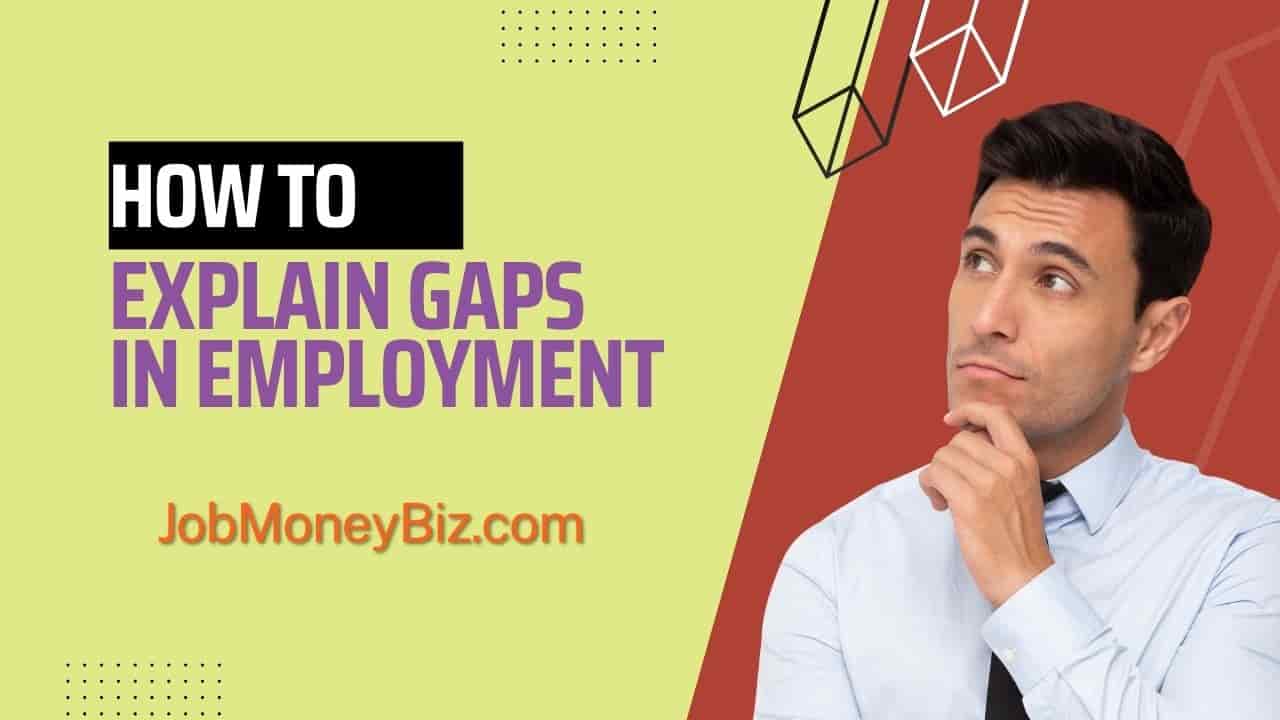“I have some gaps in my employment – how should I explain those in an interview?” – many job aspirants have this question in their mind and really they don’t have much clue about the right answer.
Due to different reasons, gaps may happen in our employment.
Sometimes we go for these job intervals or employment gaps willingly to focus on some higher priority work in our life and sometimes these gaps just happen due to unavoidable circumstances.
But it’s true that If we have gaps in our employment it can sometimes be difficult to explain these in job interviews.
Your interviewers may probe with questions that challenge your reasons for not working, or your motivation or commitment. Interviewers hate gaps. If you have gaps on your resume / CV you can almost certainly guarantee that an interviewer will ask you about them.
Remember that the interviewers are trying to find out the real reason behind the gap as they are suspecting some weakness or fault or shortcomings at your end that may make you ineligible for the post they want to hire for.
Sometimes they dig in so much that it becomes quite uneasy for the candidate to continue with the interview.
In this post, we will see how to tackle this uneasy situation and explain the employment gap in an interview. To explain this uncomfortable question you certainly need to have a strategy or plan.
But before that, you may like to consider these questions to finalize your strategy.

How to explain employment gaps?
There are often justifiable and appropriate reasons. Don’t try to hide away from them. You will get caught out.
List the reasons why you’ve got those gaps plus what you have learned from that period of time. There are always valuable lessons we can learn from a gap.
Here we have 3 tips or suggestions you can use to prepare your justification for the employment gap in your career.
Suggestion number 1
One of the most common reasons behind the employment gap can be “I was looking for a new role”. But, looking for a new job isn’t a full-time activity, so you have to explain how wisely you used the time you had available during the gap. For example, you can tell that you were investing in your personal development.
Now the question will come from the interviewers to find out what you needed to develop about yourself so badly that caused a gap in your career.
You can mention some new skills you wanted to develop or some weaknesses you needed to overcome. Make sure that you have really developed that skill and already mentioned it in the resume. And also make sure to prove your worth on this skill if the interviewers begin to test that skill.
This may go down well with an interviewer if you can showcase that you love to develop your skillsets fully before taking up a job that badly needs that. It shows that you are serious enough about your career and performance.
Suggestion number 2
The employment gap may be caused by your personal circumstances which can vary from person to person. This point will help you if you had to accept the gaps due to some health or family urgencies.
Just ask yourself: Are there any valid health or family reasons for the gaps (e.g. did you have to care for someone, did you look after your newborn kids, did you have serious health issues, etc.)?
Whatever your situation is, try to focus on the productive things you did during that time that have added value to your professional profile. And then sell it to an interviewer in a positive way. Tell the interviewer that you used your time to do something constructive.
For example, attending a course, teaching yourself a new skill, trying to overcome a personal weakness, starting a blog in which you share your expertise, etc.
Even if you had occasional gaps (for whatever reason) make sure you can prove to a hiring manager that you used your time effectively and in a way that might benefit you in your next job.
Suggestion number 3
Did you struggle a lot to find new job opportunities after being sacked from a job and that caused a gap?
Or did you leave your job as it was boring to you? And, did you try to do something of your own, and again for some reason, you want to go back to the world of jobs?
If the answer to the above questions is “yes” then this suggestion will help you prepare your justification for the gap in your career.
If you are not getting a suitable job then there is a high chance that you must have tried to do something of your own using your own skillset to earn money.
It may be some very simple and ordinary initiative, but there are many who try to do something when they are out of jobs – sometimes they come up with some product or sometimes they provide some service.
If you belong to this group and want to come back to your job profile, then don’t worry. With confidence place your business or startup experience in front of the interviewers.
But one caution: this time certainly they will ask a different question, “why do you want to leave your business?” Be ready to answer this question as well.
See how Linkedin can help to boost your job profile.
Summary
Make sure you have good explanations for the gaps.
A gap itself is not a problem if it can be explained.
In the entire world job situation is quite bad. And if you are going through some personal bad patch then sometimes it makes the situation a little more difficult.
And then there are some interviewers who are more inclined to find negative aspects of a candidate instead of finding the positives.
If these interviewers get a little bit suspicious that you have been laid off then probably they will not focus on the great achievements you made in your past, rather they would start asking questions in series just to find out that their guesswork is correct.
There are many mature recruiters as well who have seen the real world a bit more and they probably will not bug you like the above-mentioned people and will patiently listen to what you have to say. We should hope for the best to get these people as our interviewers.
If you were out of a job by choice explain what the choice was and make sure the interviewer understands why you are ready and able to return to work now.
If you are returning to work after a gap, be realistic about your re-entry point. It is an unfortunate reality that after a gap you may need to take a step backward in terms of salary and responsibilities.
This can be positive for a new employer – they will get a more experienced employee for less money.
Anupam M is blogging on this site on different aspects of technology, job, and business. He is an experienced IT professional with an Engineering degree from a premier NIT. Know more

